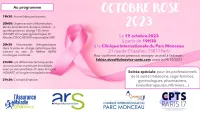To ensure your safety and comfort, a number of committees are responsible for dealing with issues relating to the running of the clinic.
NOSOCOMIAL INFECTION CONTROL COMMITTEE (CLIN)
PAIN CONTROL COMMITTEE (CLUD)
ESTABLISHMENT MEDICAL CONFERENCE (CME)
QUALITY-CERTIFICATION STEERING COMMITTEE (CPQ)
The results of these visits can be consulted at: www.has-sante.fr
MEDICINES AND STERILE MEDICAL DEVICES COMMITTEE (COMEDIMS)
VIGILANCE AND RISK COMMITTEE (COVIR)
This committee coordinates the management of health vigilance: transfusion safety and haemovigilance, pharmacovigilance, identity-vigilance, radiovigilance, materialovigilance, etc. committees.
The factors inherent in any healthcare establishment are identified and analysed, and give rise to annual action plans for each manager, in order to implement the establishment's strategy.







